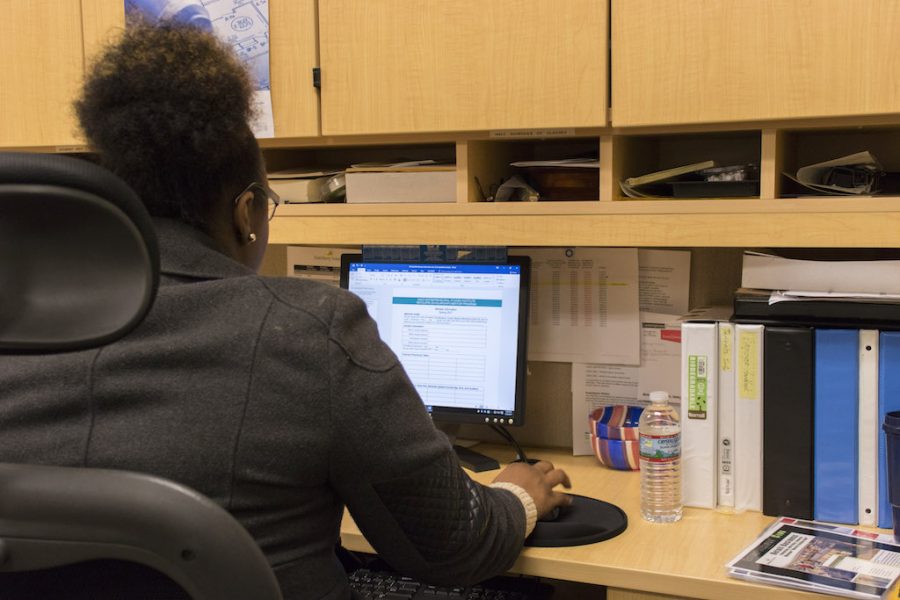College online courses move students forward
Students find online courses more convenient than face-to-face classes.
February 1, 2017
Sophomore Grace Koehne quietly sips her latte, blending in with the buzz of the coffee shop. From an average perspective, she appears to be a typical college student, but school has not always been easy for her.
The hospital has been a familiar place for her. Coming to campus to take classes was not an option for her when she “physically couldn’t do it” after her second surgery. So in 2015, she took an online communications course that allowed her to recover and heal when she “wasn’t able to stand”—without dropping out of school.
Koehne is one of a growing number of college students taking online classes, which do not require them to be on campus. In fact, they can access their courses any time of day or night via the Internet.
Approximately 7,463 AACC students are enrolled in the college’s 216 online courses. And according to the Online Learning Consortium, a national organization, 5.8 million U.S. undergraduate students took online classes in fall 2014.
More than one in four college students takes at least one distance education course, the consortium estimates. And although completion rates for online classes are lower than face-to-face courses, enrollment in them is on the rise.
“I work full time and go to school, and I can balance it perfectly,” fourth-year student Chris Snyder said. “I’ve never had an issue. The only reason I can see people having issues is if they neglect to check their classes, but they have a calendar on there for you to see when everything is due. … I even save on gas.”
Computer Technologies professor Susanne Markowski said online classes are “a lot of work for both the student and the instructor.” Markowski is a mentor for new instructors on virtual courses. She earned her graduate degree online in the mid-90s when distance learning was just beginning.
But Tre Mooring, a pharmacy technician major, characterized online classes as “really hard to fail.” Just as in traditional classes, he said, “you have to take initiative. … If you have good study habits, it’s fine.”
Mooring took a hybrid math class last semester—half of the classes were in a classroom but the rest of the course was online. He called it “a better experience than when I took it as a lecture.”
Dr. Michael Gavin, the vice president of learning, said at AACC and nationwide, students are less likely to finish or pass online courses than they are to succeed in the face-to-face version of the same class.
Still, Gavin said AACC has increased its online offerings because of demand from students who find the virtual classroom more convenient than coming to campus for classes.
Colleen Eisenbeiser, AACC’s former interim dean of learning advancement and the virtual campus, said hybrid classes have higher success rates than online or traditional classes. She said a majority of AACC students take at least one online or hybrid class.
As Koehne studied for finals last semester, she reflected on past semesters.
“I was really pleased that I was allowed to recover without dropping out of school,” she said.












